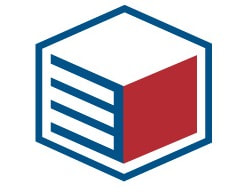|
In response to a flood of inquiries about getting into the home inspection business, we offer the following notes on becoming a Professional Home Inspector, which we hope are helpful in evaluation of this profession as a career objective. It should be noted that home inspection is closely related to the real estate industry, and as such follows the seasonal and market variances inherent in the business of real estate sales. Most home inspectors work independently, or on a commission basis for a larger company. There are generally no guaranteed salaries paid, however we can tell you that incomes vary from pitiful up to $80,000 or more, depending on individual circumstances. During the height of any real estate season, the days can be long, up to 14 hours. In the off-season, work can be all but non-existent.
A career in home inspection is not for everyone. As a new, and largely unregulated industry, it takes an entrepreneurial spirit, a willingness to be flexible, change and grow at a high rate of speed, and constantly challenge yourself to improve. If you’re a highly technical person, and you’re ready to swim with the alligators, then you’ll find home inspection an extremely interesting and rewarding occupation. Prior construction experience is a great asset - either in renovation, construction, or trade-related experience such as electrician, plumber etc. - or as a quantity surveyor, construction estimator, trades coordinator, or as a professional architect or engineer. An architect or an engineer is not automatically a good home inspector. These are disciplines that deal with very specialized and specific areas of buildings, whereas professional home inspectors are generalists, observing and understanding all the components in a building - and the relationships between different components and component systems. Home Inspectors spend a lot of time studying and writing exams. The general categories are:
Some home inspectors offer extra services such as:
With or without prior experience, the prospective home inspector usually starts by reading about, and getting involved with the parts of the house he or she is not already familiar with. There have been until recently, only a few private (and very expensive) schools of home inspection, and the content is frequently lacking. One way to start preliminary evaluation of a career in home inspection might be with an online or correspondence course. Larger inspection companies will generally teach prospective inspectors how to inspect a house, but they won’t teach you "about" the house; you'll have to learn that yourself. Community Colleges offer a wide range of evening classes in trade-related topics, and more recently some colleges have begun to offer courses in the field of home inspection. Home inspection associations have developed some training programs, primarily in the area of defect recognition, and groups such as Wood Energy Technology Transfer (WETT Inc.) offer wood energy technical training. The Ministry of Housing in Ontario delivers Ontario Building Code Courses. Professional associations provide prior learning assessments, to help applicants determine which courses of study may be required, prior to attaining applicant or candidate status. In addition to any courses of study and possibly company training and/or apprenticeship, a number of fee-paid inspections, a review of the inspector's reporting methods and formal examinations, generally must be completed before applying for full membership in a professional association. Some prior knowledge of the following will also be beneficial:
Home inspectors, whether working independently or dispatched by another company, require some form of telephone service, record keeping and follow-up service in conjunction with performing inspections. Inspectors usually have their own vehicles, and purchase their own tools, test equipment, cell phones, computers etc. Personal and professional liability insurances, as well as disability or loss-of-income security are almost always the responsibilty of the individual - and there may be a requirement to perform a set number of fee-paid inspections as well as a substantial waiting period, before a new home inspector is eligible. IMPORTANT:
Learn more about home inspections at electrospec.ca
0 Comments
Leave a Reply. |
AuthorGil Strachan is a professional home inspector, representing Electrospec Home Inspection Services in east-central Ontario since 1994. CategoriesAll Appliances Buying And Selling Cooling Electrical Environmental Exterior Health And Safety Heating Home Improvement Home Inspection Insulation Insurance Interior Plumbing Roofing Special Structure Archives
January 2024
|


